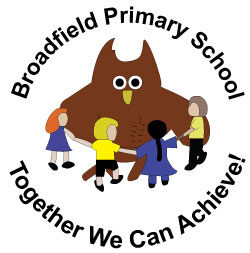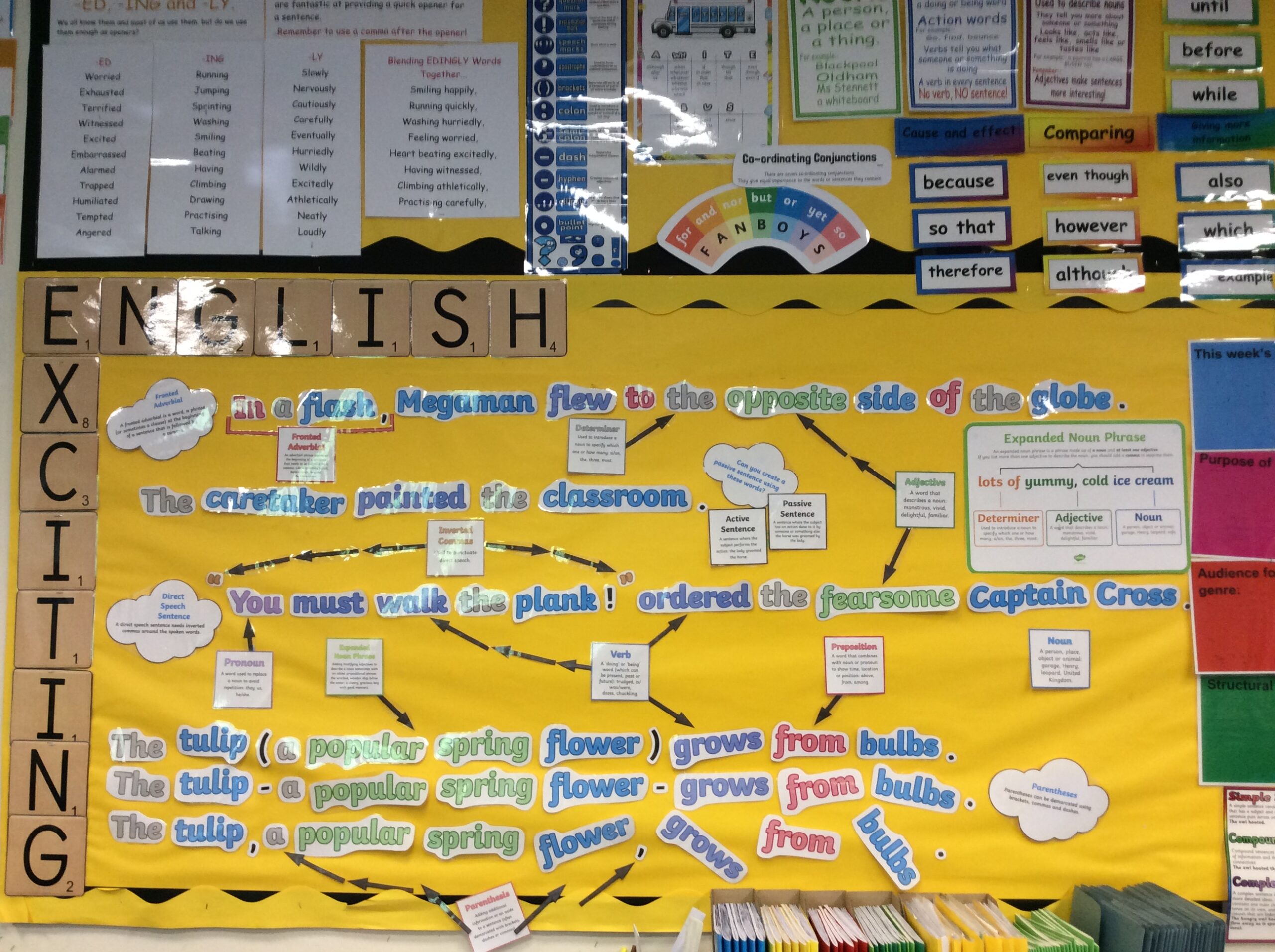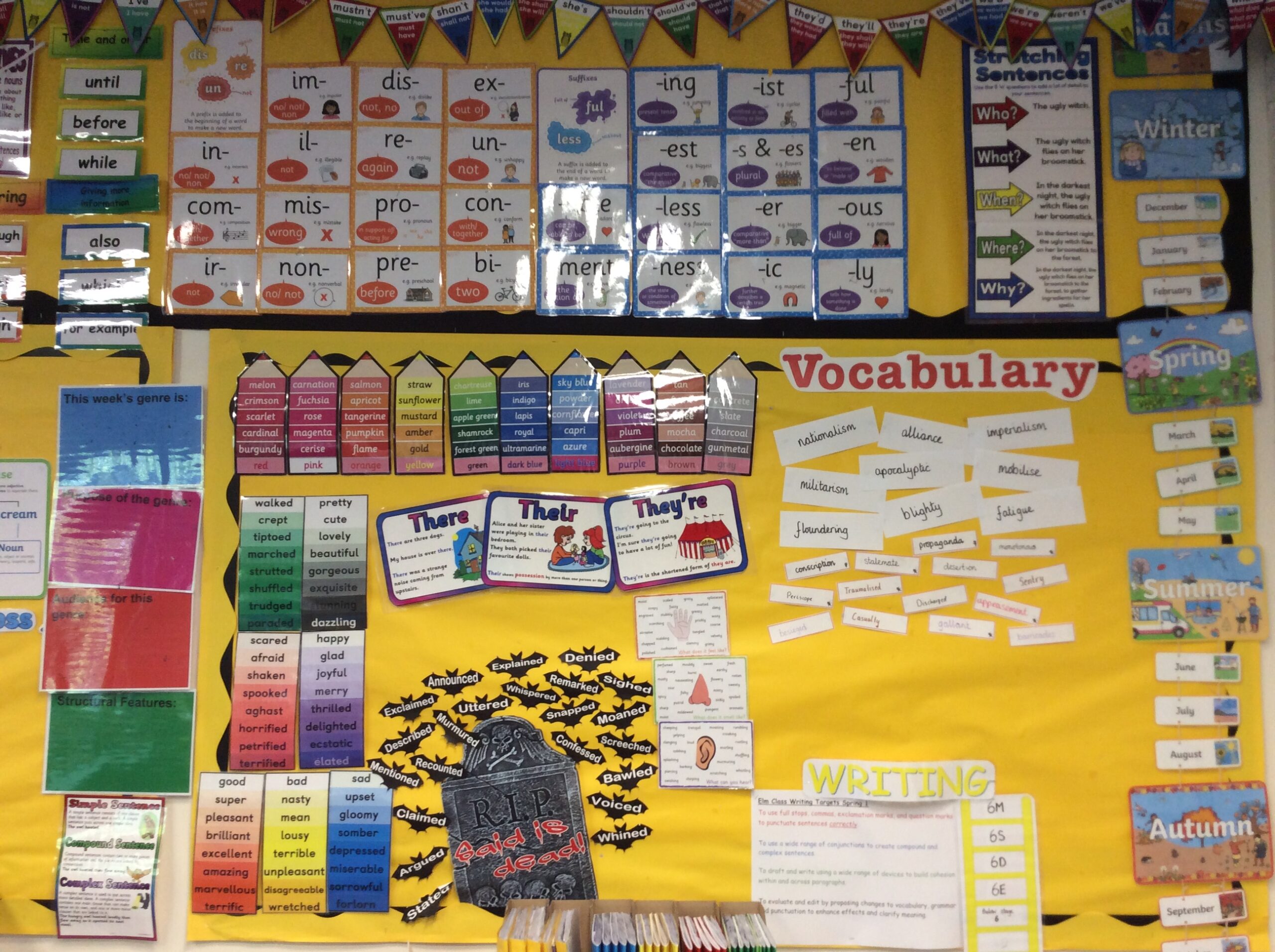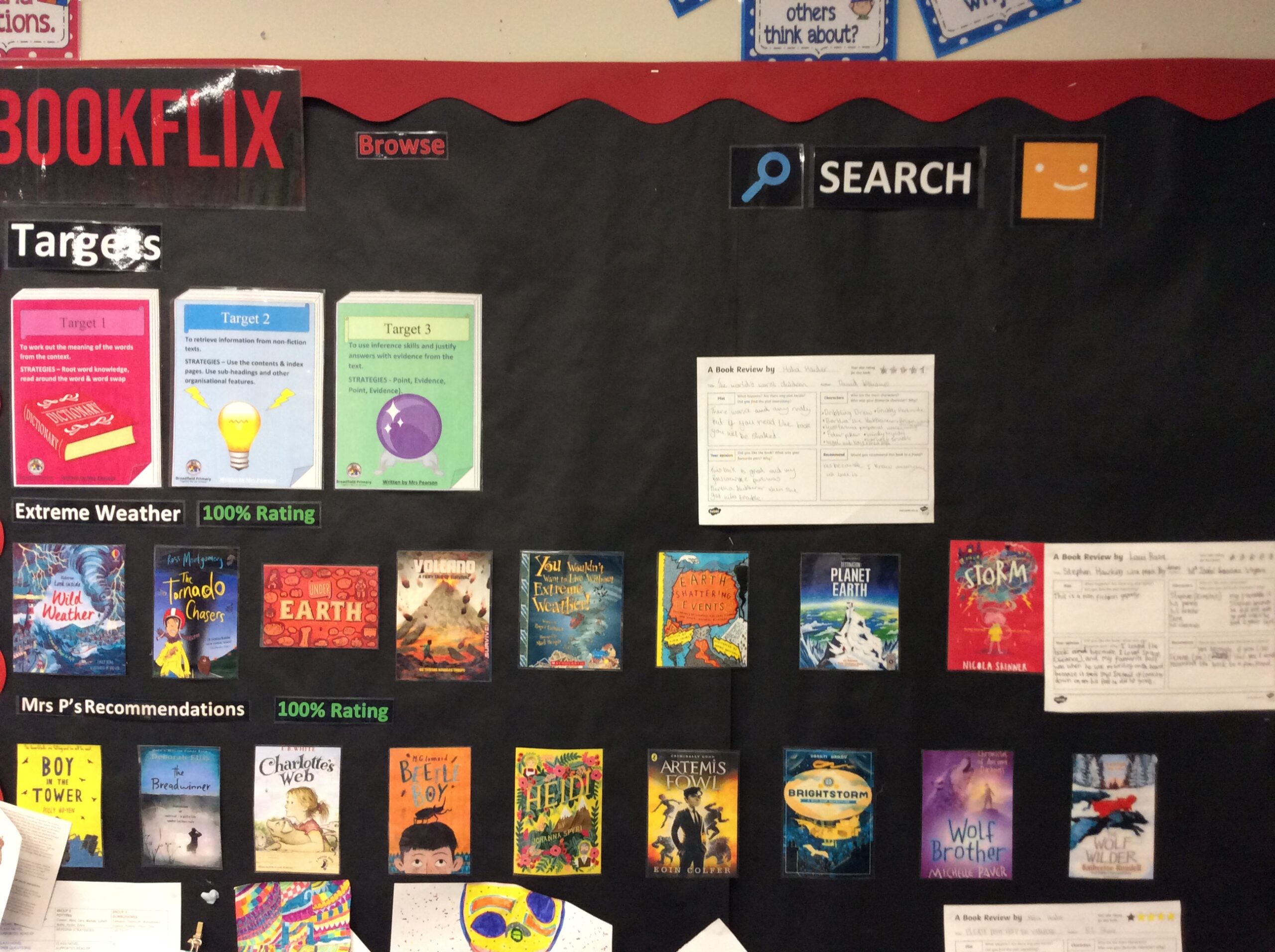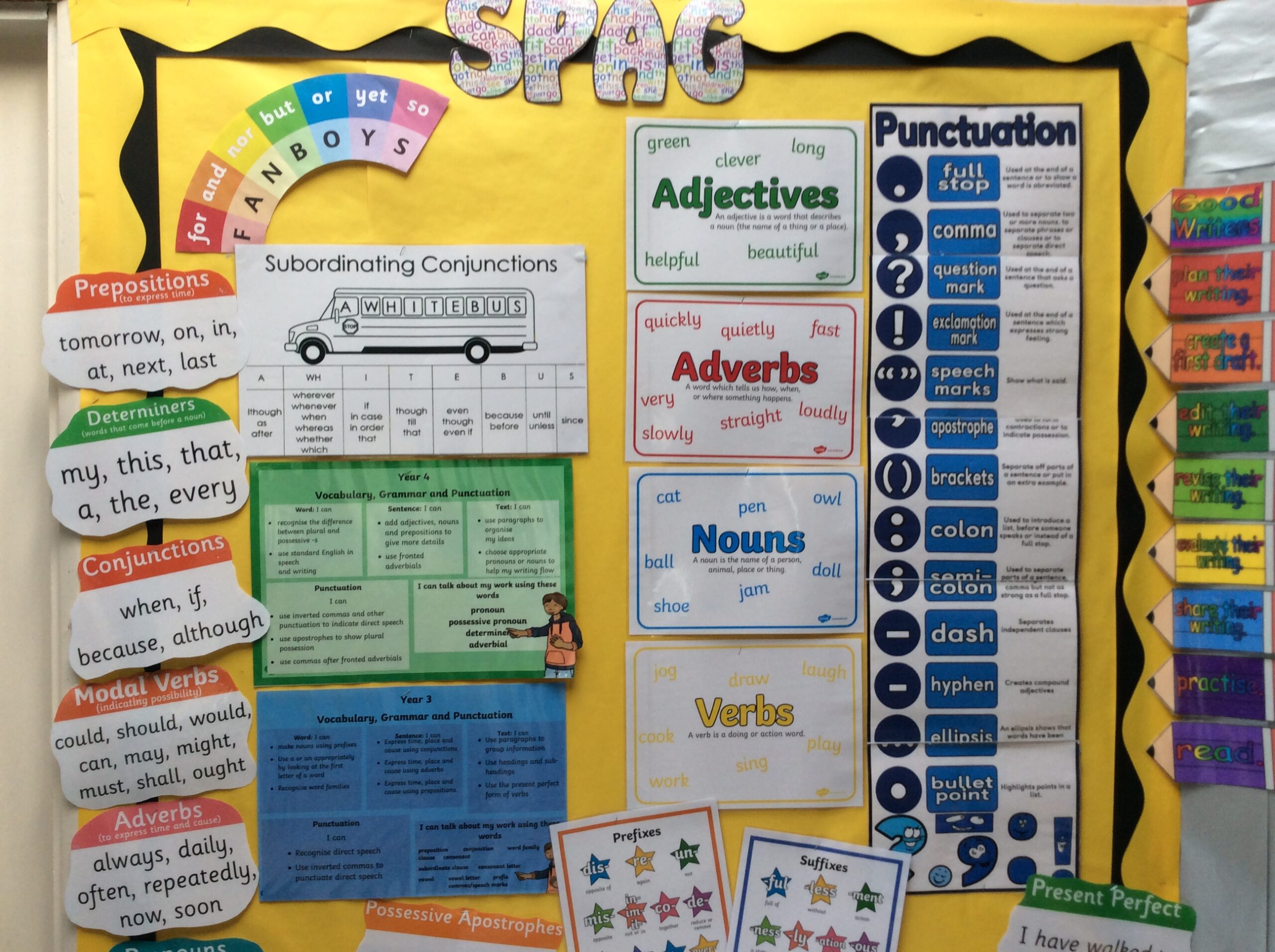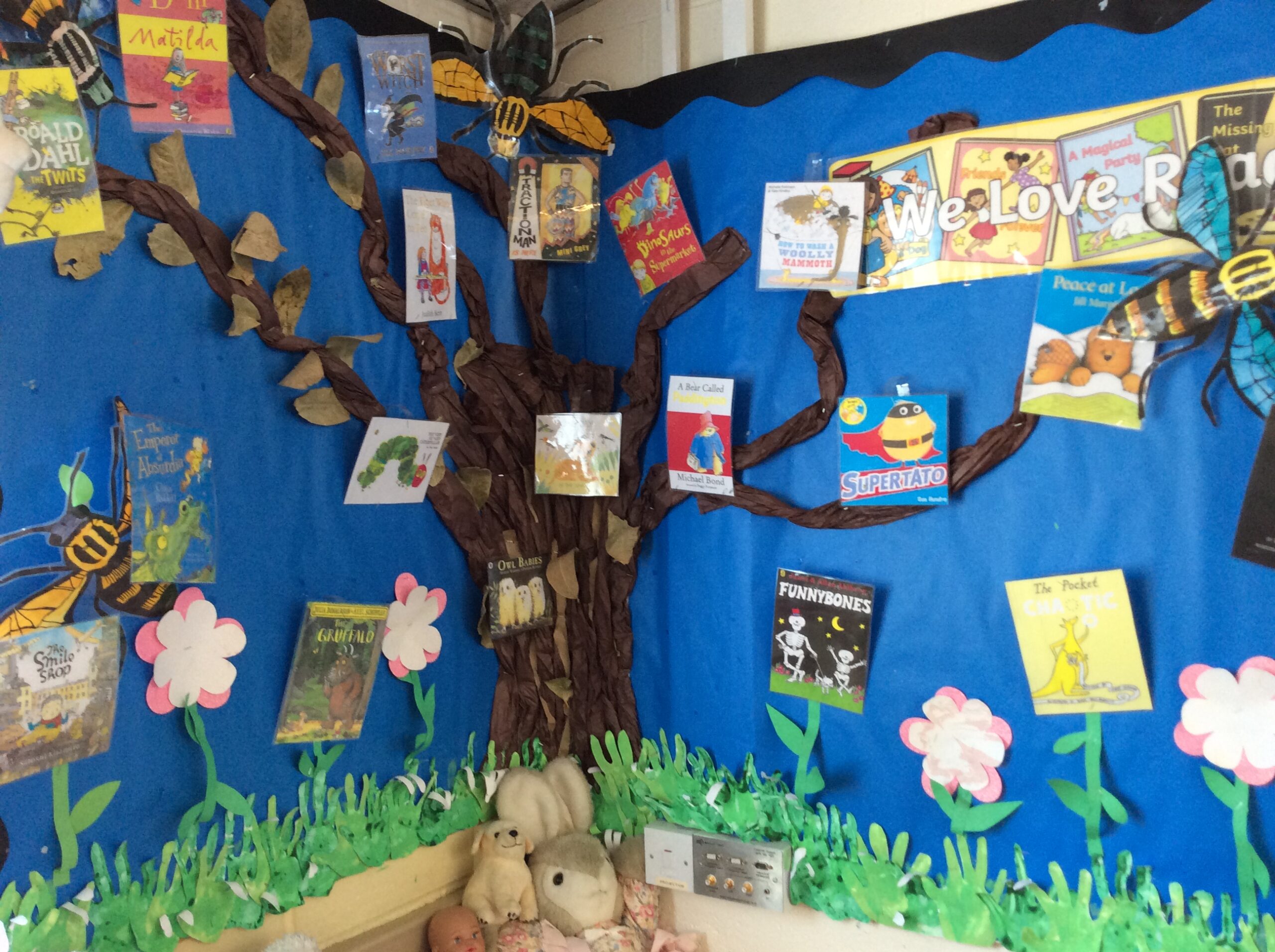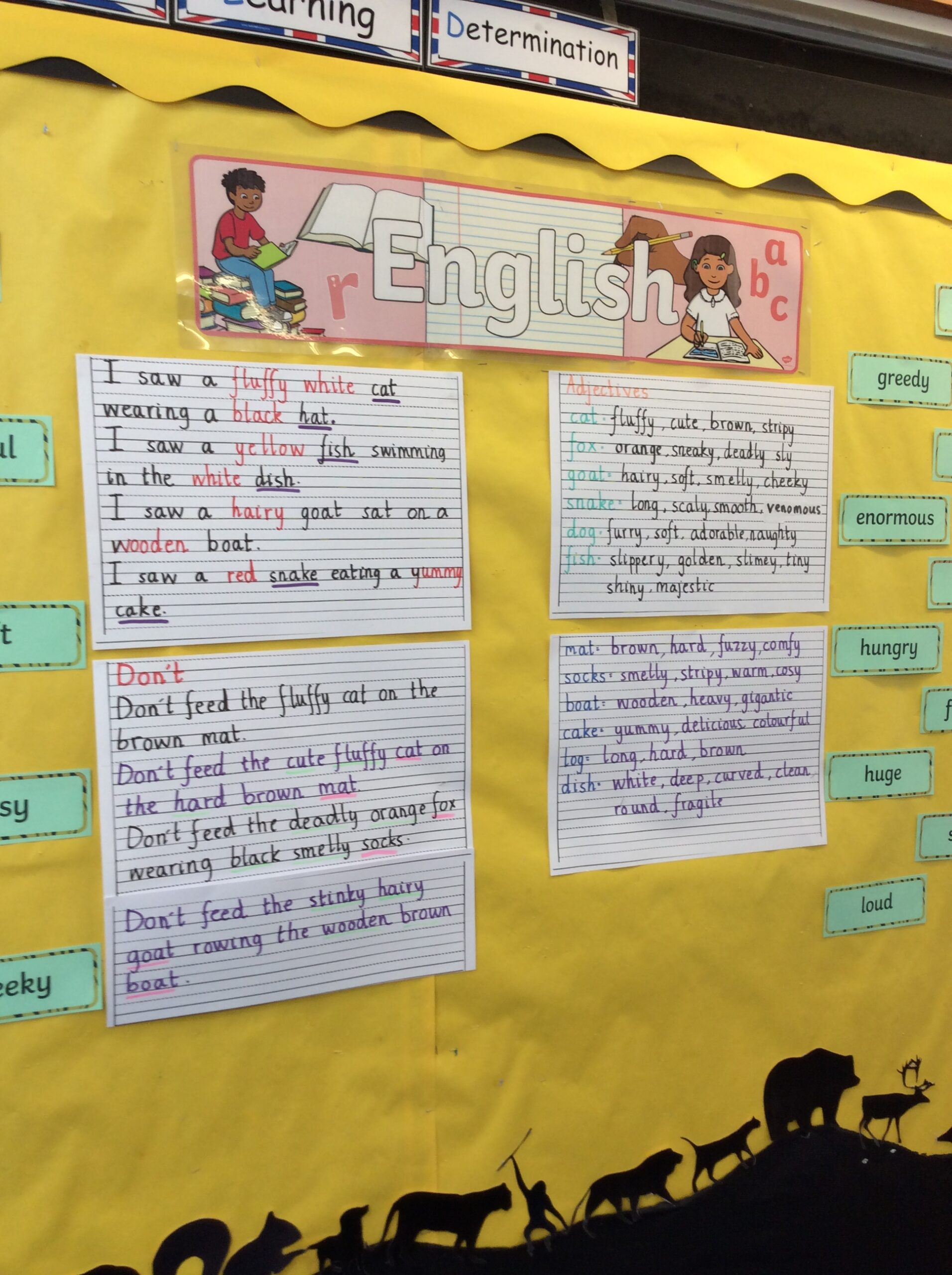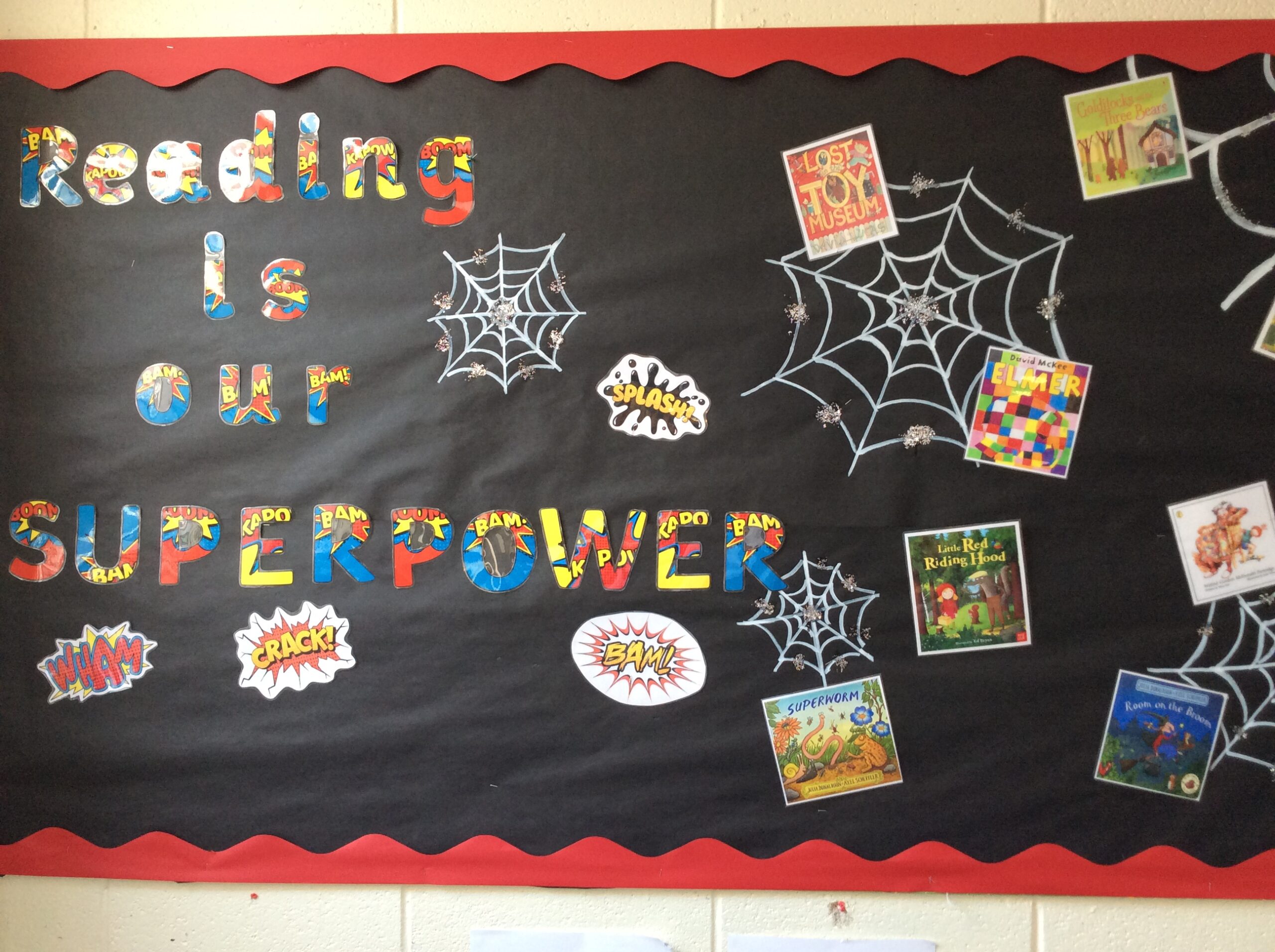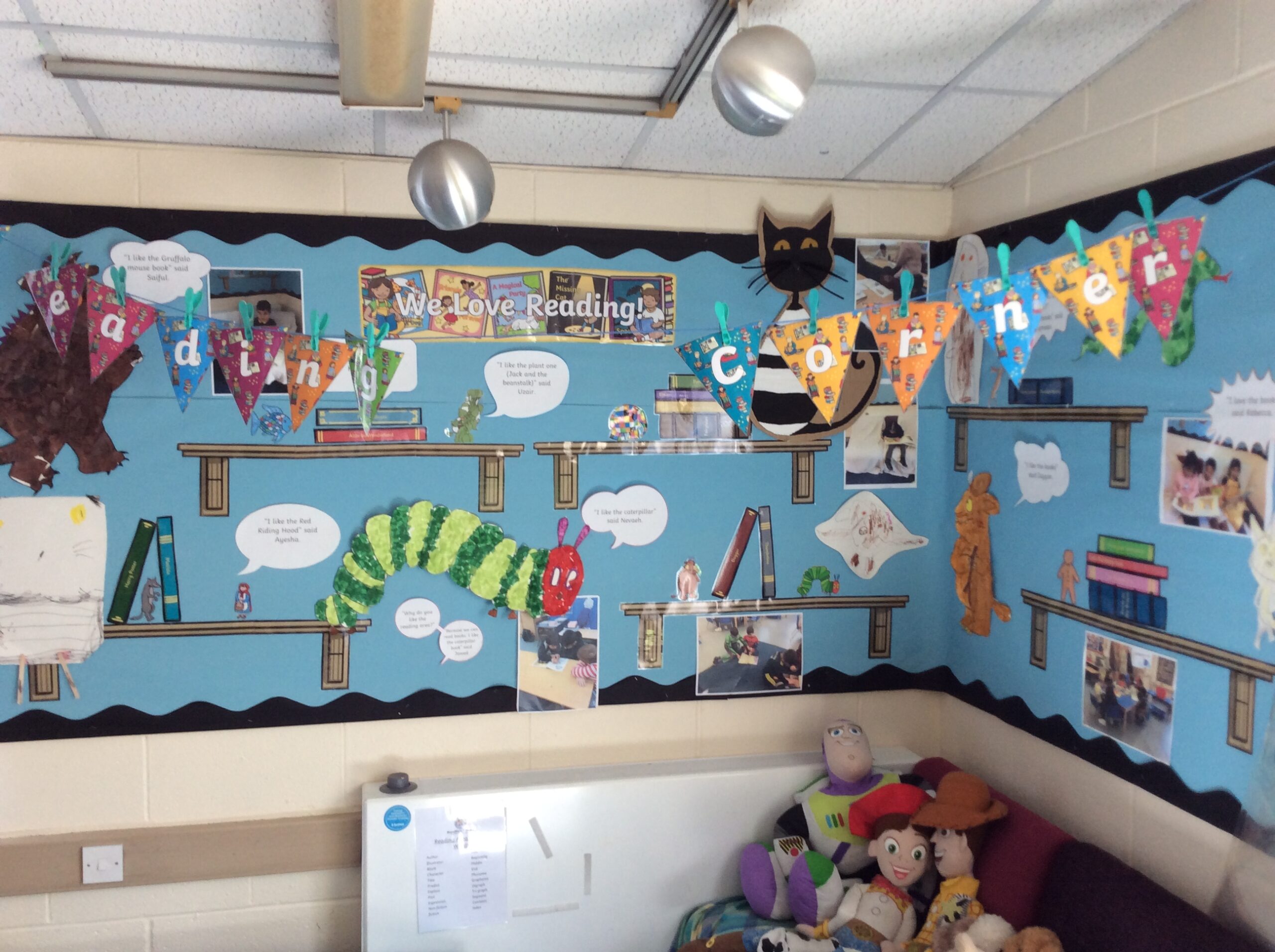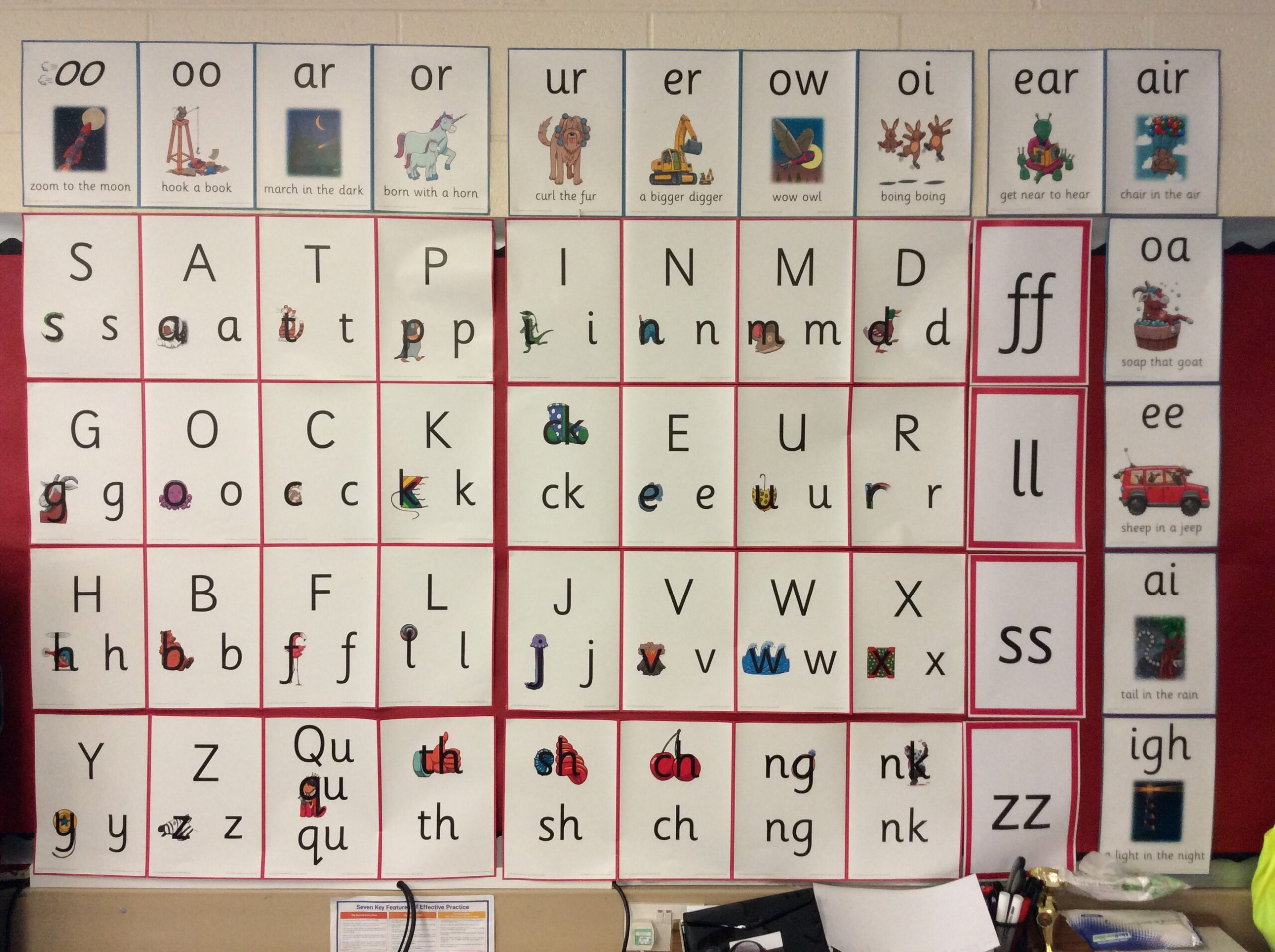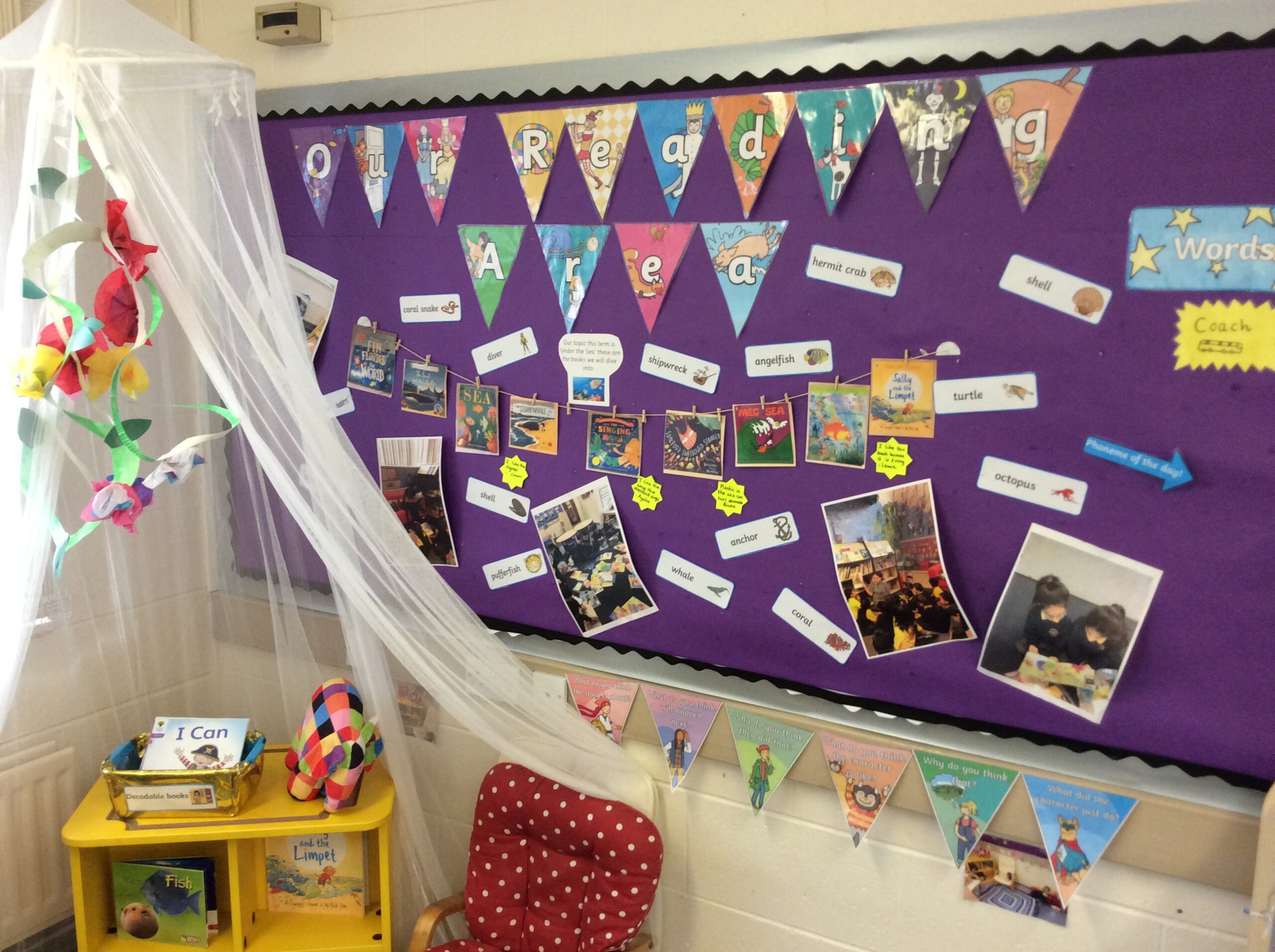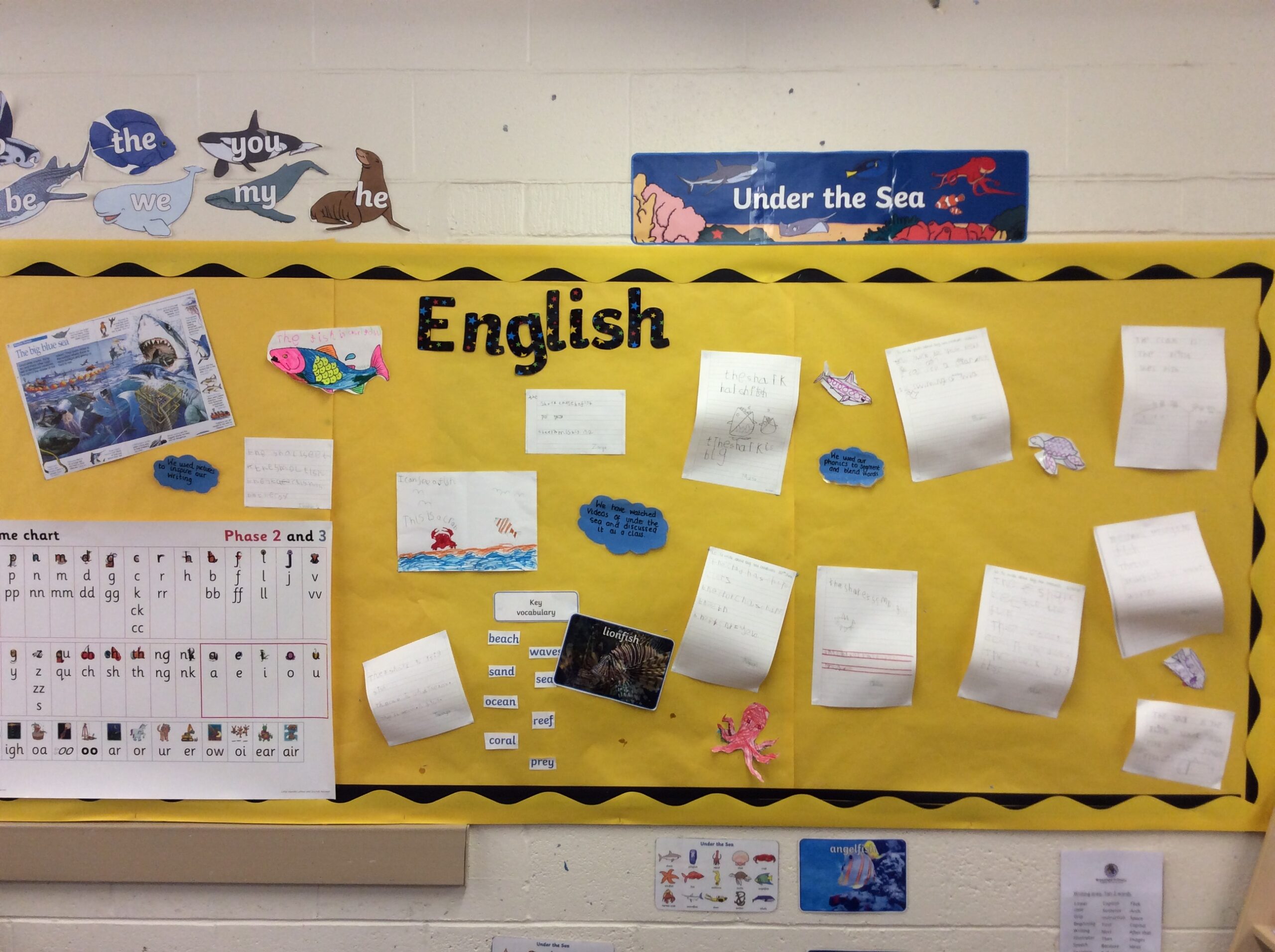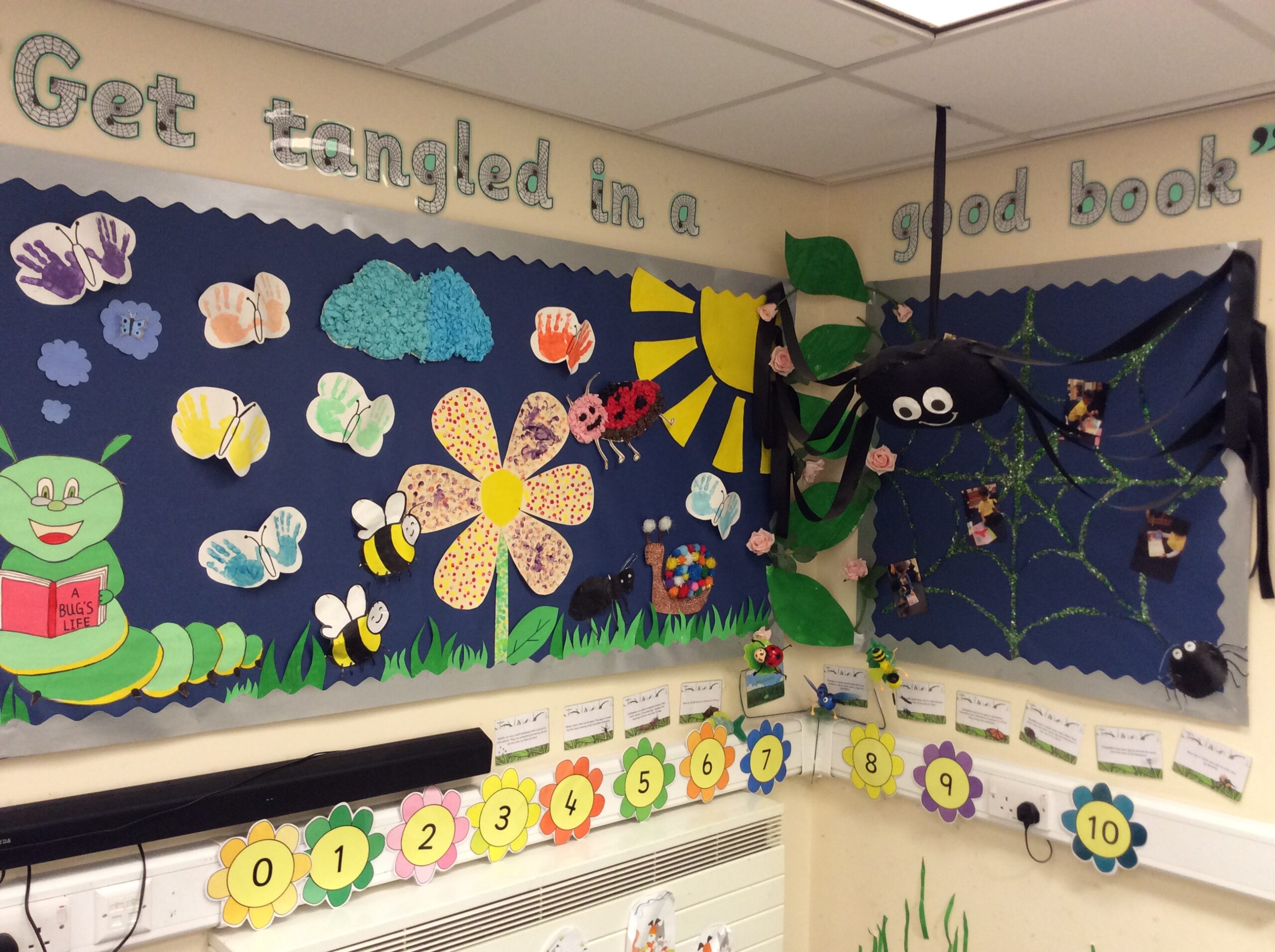Click here to view the English Writing overview for 2024-2026
At Broadfield, our aim is to provide opportunities for children to develop as confident, articulate and well-rounded children who can succeed as individuals and contribute to their community and the wider world.
It is our intention to provide our pupils with a high-quality education in English, which includes encouraging them to be able to speak confidently, gain a love of reading and write fluently in order to become successful communicators.
We believe that it is essential to promote fundamental British values in order that our pupils develop spiritually, morally, socially and culturally. Through the teaching of SMSC (Spiritual, Moral, Social and Cultural education) we aim to equip our pupils with the skills to become thoughtful, caring and active citizens in school and the wider society.
We promote Spiritual development through encouraging our pupils to respond to a variety of stimuli such as poetry, stories or real experiences. We challenge our children to answer questions such as ‘How would you feel if you were the person in this story?’ Younger children are supported to express themselves through drama/role play when faced with simple moral dilemmas.
We further promote Moral development by exploring stimulus to encourage thinking about the consequences of right and wrong behaviour, so that pupils can speculate and apply their learning to their own lives: e.g., should Goldilocks have eaten the Three Bear’s porridge or, in ‘The Boy in the Striped Pyjamas’, was Bruno’s father evil or just doing his job? Through discussion, our children are taught to consider different viewpoints and show empathy.
We promote Social development by supporting conceptual and language development through an understanding of and involvement in debates about social issues such as litter in the environment, refugees, bullying, or gender stereotyping. Additionally, children are given opportunities to work collaboratively, e.g., as part of a dramatized response; through preparing a verbal or written response to an argument and subsequently evaluating each other’s work. They are supported to become confident speakers with valued opinions by providing them with opportunities to talk in a range of settings, to a range of audiences and for different purposes. e.g., assemblies, performances and structured discussion. On an annual basis, children from Year 2 upwards are invited to submit written and verbal applications to represent the school as school councillors.
Cultural development is promoted through providing opportunities for pupils to engage with texts from or representing different cultures, e.g. Handa’s Surprise, The Great Kapok Tree, The Indian in the Cupboard, Escape from Pompeii and Journey to the River Sea.
At Broadfield, we place a strong emphasis on supporting our children to form positive images of themselves and creating a solid understanding of their own identities. During our ‘Identity’ topic at the start of each year, children are exposed to a wide range of stimuli, including music, poetry, biographies and fiction texts in order that they hear and read stories from their own and other cultures and backgrounds creating the idea that ‘everyone has a story to tell’. Through this, they are taught to explore similarities and differences and to ultimately respect themselves and others.
Phonics
To view the phonics intent, implementation and impact click here
Reading
At Broadfield Primary School, we recognise the significance of good reading skills as being a factor in the success of our children socially and academically during their time at Broadfield. We recognise the importance of sending our children to secondary school as fluent and confident readers, who have the ability to access all areas of the curriculum. Competence and confidence in reading is the key to independent learning and therefore the teaching of these skills is given a high priority by all staff.
Aims
In order for children to access all areas of the curriculum we aim to do the following:
- To teach reading skills from an early age.
- To ensure our children have a solid foundation in phonics so that the children can decode words accurately and confidently.
- To ensure that children develop the ability to read aloud fluently and with expression.
- To teach children that reading is an enjoyable activity.
- To ensure that children read for meaning.
- To ensure that children are competent at using a range of strategies for reading for meaning.
- To encourage children to read a wide range of books including fiction, poetry and non-fiction materials
- To expose children to books that celebrate other cultures and languages.
- To encourage children to listen attentively with an inquisitive mind.
- To recognise that reading is linked with writing and to teach these skills explicitly.
- To ensure that all children have equal access to the curriculum regardless of gender, race, religion or ability.
- Children with specific reading, speech and language or hearing difficulties will be identified and supported through intervention programmes in school and external help will be sought where necessary.
How we teach reading
At Broadfield, we place a high importance on children reading for pleasure. The teaching of reading is carefully planned to meet the needs of all our children, taking into account any low literacy baselines or inconsistent home support. We teach reading explicitly using a range of teaching procedures and strategies in order to produce confident, competent and independent readers.
- Modelled reading – This is where the adult demonstrates specific reading behaviours e.g. using comprehension and word identification strategies.
- Reading aloud to children – to share an enjoyment and love of reading. It enriches their language, develops their comprehension and provides a model for their own writing.
- Shared reading – This enables children to read together and access a more challenging text.
- Guided reading – Small groups of children/whole class use and develop comprehension and book discussion strategies.
- Independent reading.
- 1:1 reading sessions with teacher/support staff.
Writing
Writing is a crucial part of our curriculum, so all of our children are given the opportunities to develop then apply their writing skills in all of their learning and across all areas of the curriculum.
Our aim is to create confident, independent writers and spellers who have a positive and enthusiastic attitude to their work.
Through exposing our children to a wide range of quality texts and exciting stimuli, including both fiction and non-fiction texts, poetry and prose, our aim is that our children will develop an interest in words, which they will then use to broaden their vocabulary.
How we teach writing
Our children are taught to ensure that their writing makes sense and engages the reader; to do this they learn to re-read, edit and improve their own work.
In order to promote confident writers, we provide daily opportunities for them to practice these skills by writing for a range of purposes and audiences. This is then applied across the wider curriculum, using a variety of text types.
English is planned for, following the EYFS Framework and KS1 and KS2 school curriculum. Whilst the National Curriculum forms the foundation of our curriculum, we make sure that children learn additional skills, knowledge and understanding by enhancing our curriculum as and when necessary.
The sequence of teaching writing is consistent across year groups and is structured as following, differentiated to meet the needs of our children.
- Reading a text, appropriate in age and content,
- checking understanding of vocabulary and meaning through discussion
- analysing texts studied in terms of structure and language
- studying, learning and practising relevant grammatical and vocabulary based skills
- composing shorter pieces of writing in response to given stimuli (including first hand experiences)
- planning longer pieces of writing
- drafting then creating longer pieces of writing
- evaluating and self/peer assessing pieces of writing
- editing and improving writing (including re-drafting where appropriate)
Within English lessons, pupils may experience Guided Writing sessions where teachers / teaching assistants will work with smaller groups of pupils to focus on a particular skill, modelling, scribing and supporting where necessary.
Writing is assessed at appropriate times when key skills can be applied in a meaningful way and next steps are identified by the teacher and also through self and peer assessment.
Moderation of writing-to confirm teacher judgements-takes place in school, on a half-termly basis (within and across units) and between local schools with whom we have formed professional relationships(termly).
How we teach Handwriting
Handwriting is taught in stand-alone lessons with a clear focus on a particular letter, join or any aspect of handwriting that the pupils need to focus on. From Year 2, pupils are encouraged to attempt joining strokes and subsequently to use a joined handwriting style. Children who consistently struggle to form letters correctly/neatly will be supported to do so.
Spelling, Punctuation and Grammar (SPaG)
Grammar, punctuation vocabulary and spelling are key parts of the writing process and children need to know these elements in order to improve their writing. Our grammar teaching is integrated into the learning journey for each writing plan. We teach the skills discretely within this context so that the children can use them in their own writing. Children learn how to vary sentences, make interesting and ambitious word choices, and use grammar and punctuation correctly.
We teach spelling and new vocabulary within the context of everyday writing and topic focus; consequently, equipping our children with a language rich curriculum. We also explicitly teach spelling in each year group, focussing on use of statutory word lists. New words are introduced weekly, spelling patterns are taught then children are encouraged to use these words in their writing. Word lists are regularly sent home for children to learn independently.
Additionally, children are encouraged to investigate and analyse unfamiliar or subject specific words, then given the opportunity to practise and apply their new understanding in their own writing.
Children requiring extra support, receive personalised interventions where they are taught specific grammatical terms or subject specific vocabulary in a more focussed way. This includes creation of knowledge organisers, word/mind maps or glossaries.
Click here to see the overview for the teaching of English
